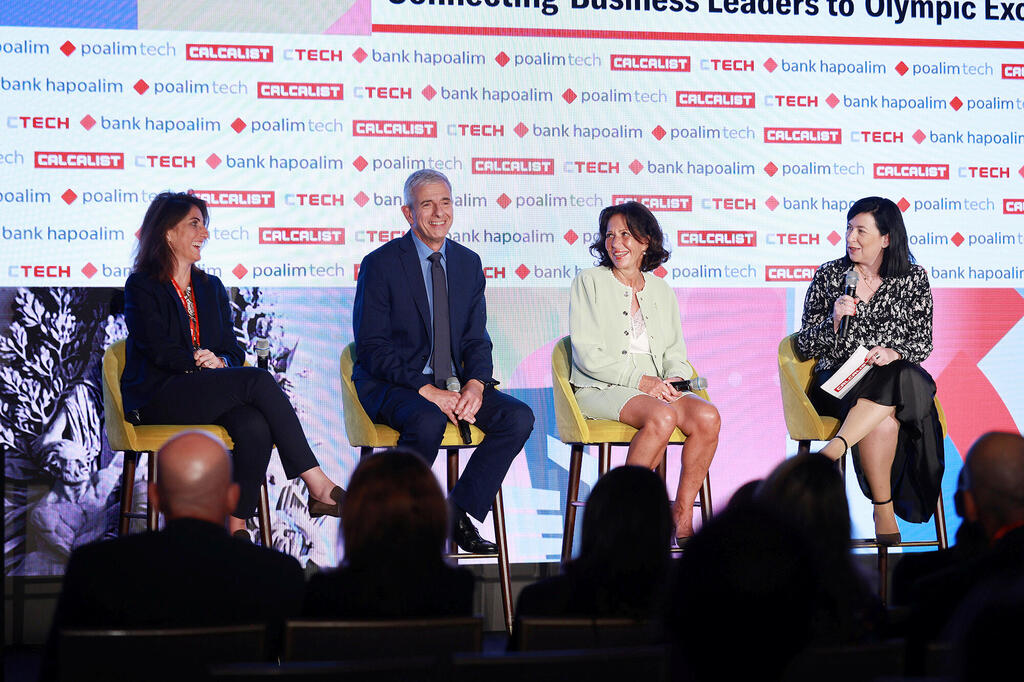
Paris 2024
"The business sector continues to succeed because of companies' value proposition"
Yuval Cohen, managing partner at Fortissimo Capital, was speaking on a panel as part of the Calcalist and Bank Hapoalim business delegation to Paris. "Right now Israel is winning in the business world, but that does not mean this will always be the case."
"Right now, Israel is winning in the business world, but that doesn't mean we will always be resilient. There is a risk, and there could even be more significant challenges if certain situations snowball," said Yuval Cohen, managing partner at Fortissimo Capital, during a panel discussion on strengthening business relations and cooperation between Europe and Israel. This discussion took place as part of the Calcalist and Bank Hapoalim business delegation to Paris.
Moderated by Sophie Shulman from Calcalist, Cohen emphasized that the business sector continues to succeed because companies offer strong value propositions. "Companies are successful today not because the world likes or dislikes us, but because of their value proposition. This means not only innovation but also excellence in service and business models. We face challenges and risks, but I am very optimistic by nature, as is the business community. I see a bright future for the country, not just in startups but in the talents and spirit we have. I hope we will emerge from the crisis united and strengthened. On the political side, we are strong and must not forget that," Cohen stated.
Fortissimo recently achieved a significant exit, selling 65% of the software company Priority to Blackstone for $800 million. Cohen highlighted Priority's growth since Fortissimo's 2014 investment: "We bought the company for NIS 192 million, starting with 70 employees, and today there are 600. The company has developed a roadmap, expanded its ecosystem, and acquired seven companies, mainly in Israel. Initially, we considered acquisitions in the U.S., but decided to focus on Israel. Blackstone saw Priority as a leading player with a solid business model, which deserved a premium."
Cohen was asked if the war impacted business and this transaction specifically. He noted that some investors withdrew recently, but because Blackstone has a local office in Israel, which led the deal, it succeeded. "They understand that we will emerge from the crisis and Israel will not fall apart," Cohen said.
The cooperation between Israel and Europe is not only seen in European investments in Israel but also in Israeli investments in Europe. Israeli institutions managing NIS 2.5 trillion in public funds are looking to diversify their investments outside of Israel.
Stephanie Bensimon, head of the real estate fund at Ardian, a large private equity fund in Europe managing assets worth €164 billion, also spoke on the panel. She noted that Ardian works with Israeli institutions because Israel is seen as innovative and dynamic. "The structural changes in Israel's pension field have created an institutional market interesting for us to work with. While Israel does a lot of business with the U.S., there are also significant investments in Europe," Bensimon said.
Bensimon highlighted that Europe is a stable market, an essential feature during periods of high interest rates, and that there are emerging opportunities in European real estate.
Josée Sulzer, Chief Investment Officer of the Dassault Group, also makes investments in Israel. When asked what type of investments she is looking for, she said: "We are interested in the field of technology. There are smart and talented people in Israel. We started making investments in Israel more than ten years ago, slowly and in a gradual manner, and we had a warm welcome in Israel." Sulzer further emphasized that the group makes its investments in Israel through Israeli funds, with which it has established strong ties. "We do not invest directly in start-ups, because we’d have to assign special teams for that. It is a complex task to locate the right startups, especially when the world is constantly changing. This is the specialty of the funds," she said, and added that the pandemic period was an excellent example of the need to be very flexible in business plans, and that entrepreneurs in Israel are very flexible and know how to adapt to changes.














